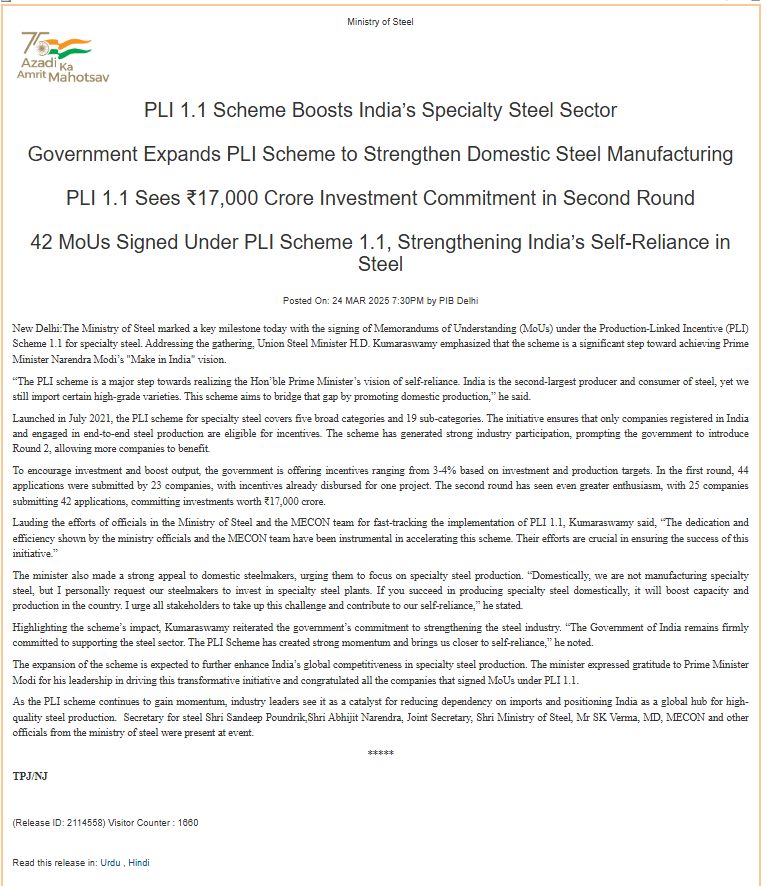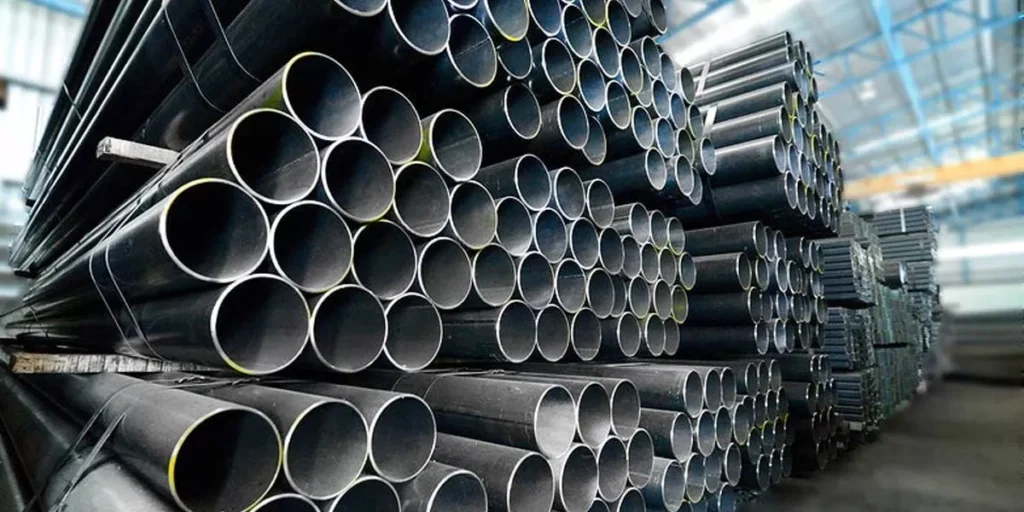Introduction
The Indian government has taken a major step toward strengthening its steel industry by tightening procurement policies. The new policy prioritizes domestically produced steel in government contracts and introduces a reciprocity clause, limiting foreign competition. This move aligns with the government’s “Atmanirbhar Bharat” (Self-Reliant India) initiative, aiming to boost local production, create jobs, and reduce dependency on imported steel. But what does this mean for the industry, consumers, and international trade relations? Let’s break it down.
Recent news
Trump Declares ‘Liberation Day’ as New Tariffs Take Effect (2024)
BEL Share Price Falls 5% as Rs 23,000 Crore Turnover Misses Target
5 Key Reasons Bernstein Downgrades Waaree Energies & Premier Energies: Here’s Why
New Steel Procurement Policy: Key Highlights
1. Preference for Domestically Produced Steel
The revised policy ensures that government-funded infrastructure projects source steel primarily from Indian manufacturers. This decision aims to:
- Strengthen the domestic steel industry
- Reduce reliance on imports
- Enhance self-sufficiency in key sectors like construction, railways, and defense
2. Introduction of the Reciprocity Clause
One of the most significant changes is the reciprocity clause. This means that if a country restricts Indian steel exports or has unfair trade practices, India will limit its steel imports from that country. This measure promotes fair trade and protects manufacturers from unfair competition.
3. Stricter Quality Standards & Compliance
To ensure high-quality steel usage, the government has:
- Imposed strict Bureau of Indian Standards (BIS) certification requirements for imported steel
- Mandated traceability measures to verify the origin of steel
- Strengthened anti-dumping duties to prevent foreign companies from selling steel at unfairly low prices

Impact on the Indian Steel Industry
1. Boost to Domestic Manufacturers
With reduced foreign competition and increased government procurement steel companies like Tata Steel, JSW Steel, and SAIL stand to benefit. This will lead to:
- Higher demand for Indian steel in public infrastructure projects
- Better pricing power for domestic steelmakers
- More job opportunities in the sector
2. Encouragement for Capacity Expansion
As demand for steel rises, local manufacturers will be encouraged to expand production capacity and invest in advanced technology, further strengthening the industry.
3. Challenges in Meeting Demand
While the policy is beneficial for Indian manufacturers, challenges such as production capacity constraints, raw material availability, and rising input costs could impact the ability to meet growing demand.
Global Trade & Foreign Supplier Reactions
1. Tensions with International Suppliers
The policy might lead to tensions with countries that have traditionally exported steel tosuch as China, South Korea, and Japan. These nations may challenge trade policies at the World Trade Organization (WTO).

2. Potential Trade Retaliation
There is a possibility that affected countries may impose retaliatory tariffs on steel exports or limit access to essential raw materials such as iron ore and coking coal.
3. Positive Impact on Fair Trade Practices
Despite potential trade conflicts, the reciprocity clause sends a strong message that India will not tolerate unfair trade practices, promoting global trade transparency and fairness.
Impact on Infrastructure & End-Users
1. Infrastructure Projects to Become More Expensive?
With a shift to locally produced steel, infrastructure projects may see a short-term cost increase due to higher domestic steel prices. However, in the long run, reduced import dependency could lead to more stable pricing.
2. Quality & Reliability of Steel Supply
By enforcing stringent quality standards, the policy ensures that Indian infrastructure projects use high-quality, durable steel, reducing maintenance costs and increasing longevity.
3. Job Creation & Economic Growth
A stronger domestic steel industry means:
- More employment opportunities in steel production & allied industries
- Higher contributions to India’s GDP from the steel sector
- Improved research & innovation in steel manufacturing
Conclusion: A Strategic Move for Self-Reliance
The tightening of steel procurement policy is a bold and strategic move to boost local production, ensure fair competition, and strengthen economic resilience. While it may face short-term challenges, including trade tensions and potential cost hikes, the long-term benefits of self-sufficiency, job creation, and economic growth make it a step in the right direction. As moves forward, close monitoring and effective implementation of the policy will be crucial for its succes




2 thoughts on “India’s 5 Key Steel Policy Changes: Boosting Local Production & Fair Competition”